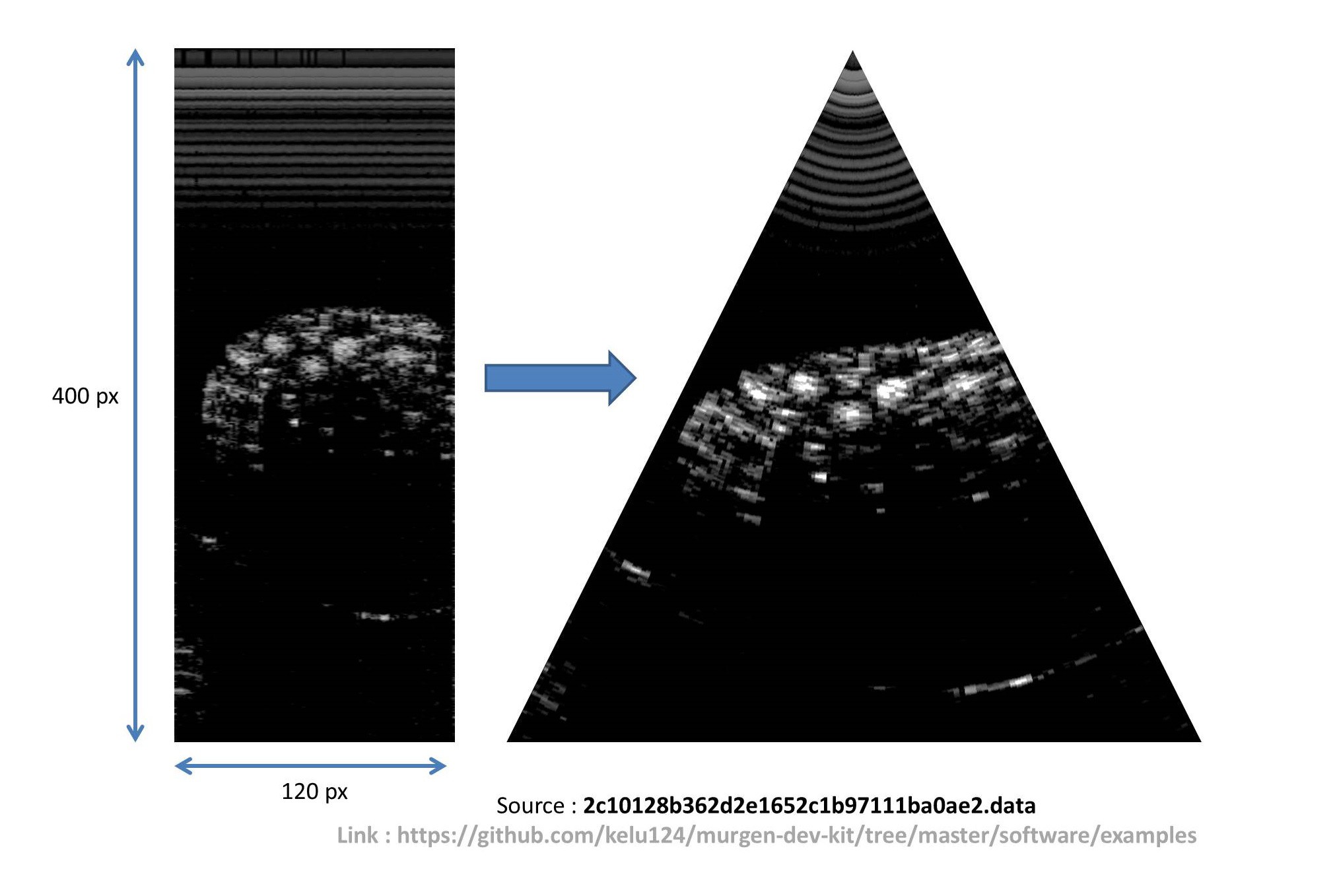Just to be curious: what would you use to convert the digitalized array into a geometrically correct shape?

A project log for Murgen: open source ultrasound imaging
An open-source ultrasound imaging dev kit side project
Just to be curious: what would you use to convert the digitalized array into a geometrically correct shape?

Discussions
Become a Hackaday.io Member
Create an account to leave a comment. Already have an account? Log In.
This is not an easy process. The first thing to do is define your transform from rectangular to polar space. The constants in your formula cannot be determined without doing some kind of image registration. The constants are determined by simulated annealing (I have used GSL in the past).
To get the best accuracy, you need a geometrically precise phantom. You probably want at least 3 flat planes offset from each other; that way the planes show up as fairly solid lines easily found by a hough transform. The offset plane normal distances should be equal.
Once you have the data, the simulated annealing will try various constants, and your hough transforms will evaluate the accuracy based on the phantom geometry. With enough data you should have pretty good constants.
Make sure your fitness test includes distances between planes, straightness of lines, etc for best accuracy.
EDIT: Don't forget to make the speed of sound part of your image calculation; it will change between water, gelatin temps, human body, etc.
Are you sure? yes | no
Awesome, thanks for this.. some insights, indeed the use of phantoms was something someone at echOpen was pushing forward!
Are you sure? yes | no
A rectangular-to-polar transformation.
Are you sure? yes | no
yup - any idea of simple and efficient implementation?
Are you sure? yes | no
[this comment has been deleted]
Awesome! We've been trying with OpenCV as well (
https://github.com/echopen/kit-soft/tree/master/Cloud9Tools/scanconversion )
Are you sure? yes | no